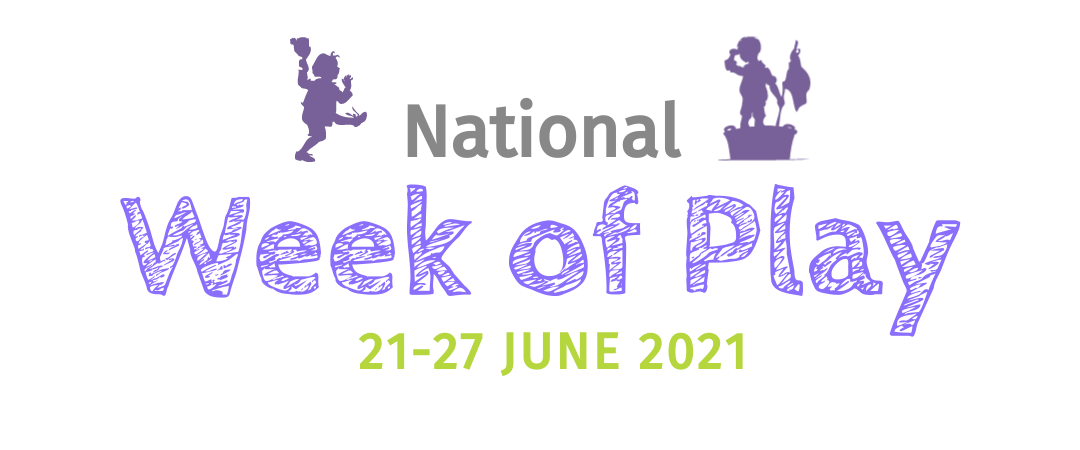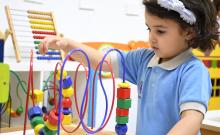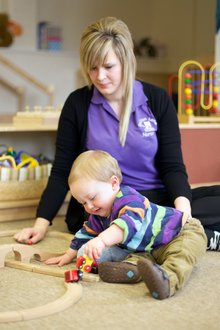 By Andrea Layzell – National Project Lead, 50 Things to Do Before You’re Five
By Andrea Layzell – National Project Lead, 50 Things to Do Before You’re Five
There’s a growing understanding about the importance of child development in the first years of a child’s life.
So much so that a cross-party manifesto was launched, supporting this vital period in the campaign 1001 Critical Days.
Also in the news is the debate about what our children need in relation to their learning, post-pandemic.
Counter arguments have been made against the emphasis on an academic ‘catch-up’ required for our children as the light at the end of the Covid tunnel appears, saying that children’s emotional development, and confidence to learn, is built into their natural inclination to play.
Many of us who work in early years know that children learn through play, creating and testing out a series of hypothesis about how their world works.
Their discoveries are further enriched when scaffolded by a more capable person who can provide support and develop the child's sense of curiosity and delight as they explore the world.
We call it developing an environment of 'sustained shared thinking'.
Children’s language development is enhanced by ‘serve and return’ conversation and rich vocabulary, the sharing of stories and rhymes, and active listening to what the child has to say.
Telling parents they matter
The latest understanding of a child’s developing brain is well documented (Centre on the Developing Child 2007) and we know that a well-informed, caring adult is key during this important period.
Who better in the role of supporting adult, than a parent, armed with not only the desire for ‘better’ for their child, but in a position to know their own child better than anyone else?
We in the early years must all make sure that you - parents and carers - recognise the huge impact you can have on your children’s outcomes and attainment.
In a report published only last year, the Royal Foundation published the results of an enquiry looking at our society’s attitude towards the early years.
The results showed although most parents (88%) generally had a good understanding that a child's development is influenced by their environment (nurture) - the recognition of the importance of the early years has on later life was much lower. Even among parents of a 0 to 5-year-old, recognition of the first five years as being most important for health and happiness in adulthood is low, with 31% stating that this is the most important developmental period.
In the CREC report, High Achieving White Working-Class Boys, published in in 2016, case studies of the families and home life of a group of boys are shared.
Despite a white working-class background (often deemed in education to be a group who underachieve) these boys were assessed as in the top 15% of the national EYFS profile.
"The study boys were strong, highly competent, motivated young children who had high levels of social and emotional skill and an ability to operate successfully in all areas of their life, at home and at school.
"Yet, this success (relative to peers) had largely passed these parents by in the feedback they had received in these formative years of the child’s life. These highly attentive parents and competent parents were equally unaware of their parenting skills and had never had these affirmed…. Their lack of self-esteem around their parenting and their subsequent joy of having these skills acknowledged in a national project was transformative for many of the parents in the study.
"Some reported that it was the first time anyone had ever given them positive feedback on their parenting competencies and capacities, which were in all cases outstanding."
 Opportunities for free play
Opportunities for free play
In a fast-moving world, where advances are surging at a remarkable rate, it’s easy to see why parents might think that their children need to be tech savvy, and that some traditional activities such as letting their imagination run free with a large cardboard box might not best prepare them for the modern world.
But rich play opportunities are shown to develop the skills, both cognitive and physical, that children will need to be able to fully embrace all the learning that lies ahead of them.
50 Things to Do Before You’re Five is a project that was developed by the team at St Edmund’s maintained nursery school in Bradford, West Yorkshire.
Our work is based on the firm belief that all parents want better for their children, and in developing 50 Things, we have tried to provide a source of information that shows parents how you can best support early learning.
Our school system has a range of methods to support children to try and narrow the gap between disadvantaged children and their more affluent peers, but the very best time to focus attention on narrowing this gap is during the earliest years, with parents part of the drive to provide the very best start in life.
"The family is the most effective and economical system for fostering and sustaining the development of the child. The involvement of the child’s family as an active participant is critical to the success of any intervention programme ... The involvement of the parents as partners in the enterprise provides an on-going system which can reinforce the effects of the programme while it is in operation, and help to sustain them after the programme ends." (Psychologist Urie Bronfenbrenner 1974)







